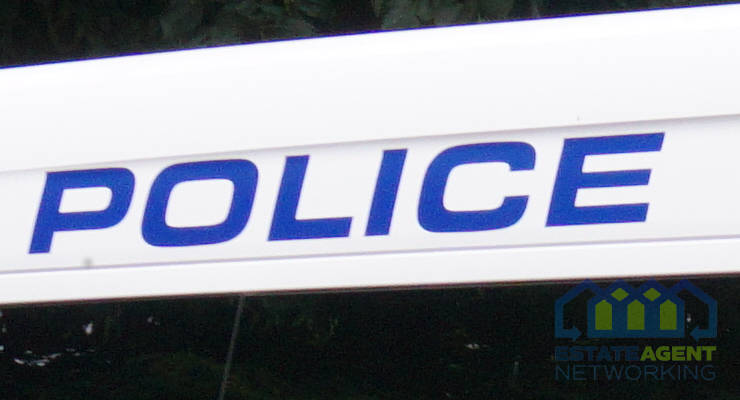Eight Police Officers Were in Racist and Sexist Group Chat
Public consciousness regarding the dishonourable practices in the police force has been growing significantly. The dialogue has been fuelled further by a recent incident involving eight officers from the West Yorkshire Police Department.
Revealing an Alarming Conversation
A tribunal has been informed about the involvement of eight officers of the West Yorkshire Police in a WhatsApp group where inappropriate language, bias, and belittling remarks were shared frequently. These officers include Sergeant Mark Otter, Police Constable Javaid Habeeb, Police Constable Dominique Hawkins, Police
Constable Matthew Harrison, Police Constable Tom Harrison, Police Constable Lee Hillyard, and Police Constable Luke Riddett.
The eighth police officer remains anonymous. All these officers served at the Pudsey police station in Leeds and have allegedly violated policing standards via their group interactions from mid-2020 to late 2021, in line with the charges filed by the West Yorkshire Police Authority.
Every one of these officers denies accusations of serious professional misconduct. The accusations were presented to the tribunal by Olivia Checa-Dover, legal representative for the Authority during a hearing in Bradford. Information shared in the group was said to be a regular mix of derogatory slurs, casual bigotry, and frequent misogyny.
An Excuse for Bullying?
The officers are alleged to have been disrespectful and disparaging to colleagues and citizens, equivalent to schoolyard bullying. This included an officer implying an alleged rape victim probably deserved it, and another stating that persistent pursuit is not harassment if consent is eventually given. Further, a photograph of an Asian detainee was shared with offensive comments.
The group’s inappropriate activities only came to light when an informant reported this to a higher-ranking officer. These officers argue that their messages were merely expressions of dark humour within a platform that allowed them to deal with traumatic experiences and offer support to each other.
Three of the officers, M. Harrison, T. Harrison, and Hillyard, have now left the force following these allegations, but Habeeb, Hawkins, Otter, and Riddett are still in service. The identity of the anonymous officer, referred to as PC X, remains withheld for justifiable legal reasons.
The Whistleblower’s Role in Exposing Misconduct
Whistleblowers play a crucial role in unveiling misconduct within organisations, and the West Yorkshire case is no exception. The individual who came forward about the WhatsApp group demonstrated courage and a commitment to justice. Their actions highlight the importance of creating environments where reporting misconduct is encouraged and protected.
For those who have experienced police misconduct, the presence of a whistleblower can serve as a powerful ally in taking action against the police. The courage displayed in bringing these issues to light empowers others to step forward and share their experiences, contributing to a collective effort to hold law enforcement accountable.
Impact on Victims of This Type of Police Misconduct
The toxic environment exposed by the group chat exacerbates the challenges victims encounter when filing police complaint claims. The casual dismissal of their experiences by those meant to protect them reinforces the need for systemic change.
Individuals affected may often feel disheartened and helpless, questioning whether their pleas for justice will be heard in a culture that appears to tolerate damaging conduct. The emotional toll of police misconduct is compounded by the realisation that those responsible may not face adequate consequences. It underscores the importance of robust mechanisms that hold officers accountable and provide victims with the support they need to pursue their claims.
Prioritising Diversity and Inclusion
One of the fundamental steps in preventing police misconduct is prioritising diversity and inclusion within law enforcement. A diverse police force reflects the communities it serves and fosters an environment where different perspectives are valued. Diversity training and recruitment initiatives that focus on attracting candidates from diverse backgrounds help dismantle biases and promote cultural competence among officers.
Inclusive policing practices ensure that all individuals are treated fairly and respectfully, regardless of their race, gender, or background. By prioritising diversity and inclusion, police departments can build trust with marginalised communities and work collaboratively to address their unique needs.
Encouraging Victims to Share Their Stories
Sharing personal experiences of police misconduct can be a powerful tool for driving change and inspiring others to take action. For victims of police brutality and misconduct, sharing their stories can help raise awareness, build solidarity, and create a sense of community among those who have been affected.
By coming forward with their experiences, victims can contribute to a broader dialogue about police misconduct and its impact on individuals and communities.
Their stories can catalyse change, encouraging others to take action against the police and advocate for reform. Talk to an expert at https://www.claimexperts.co.uk, share your story, and see what they can do for your case.
Advancing towards Accountability
Police departments must take proactive steps to address misconduct, implement meaningful reforms, and rebuild trust with the communities they serve. Moving forward requires a commitment to transparency, diversity, and community engagement.









